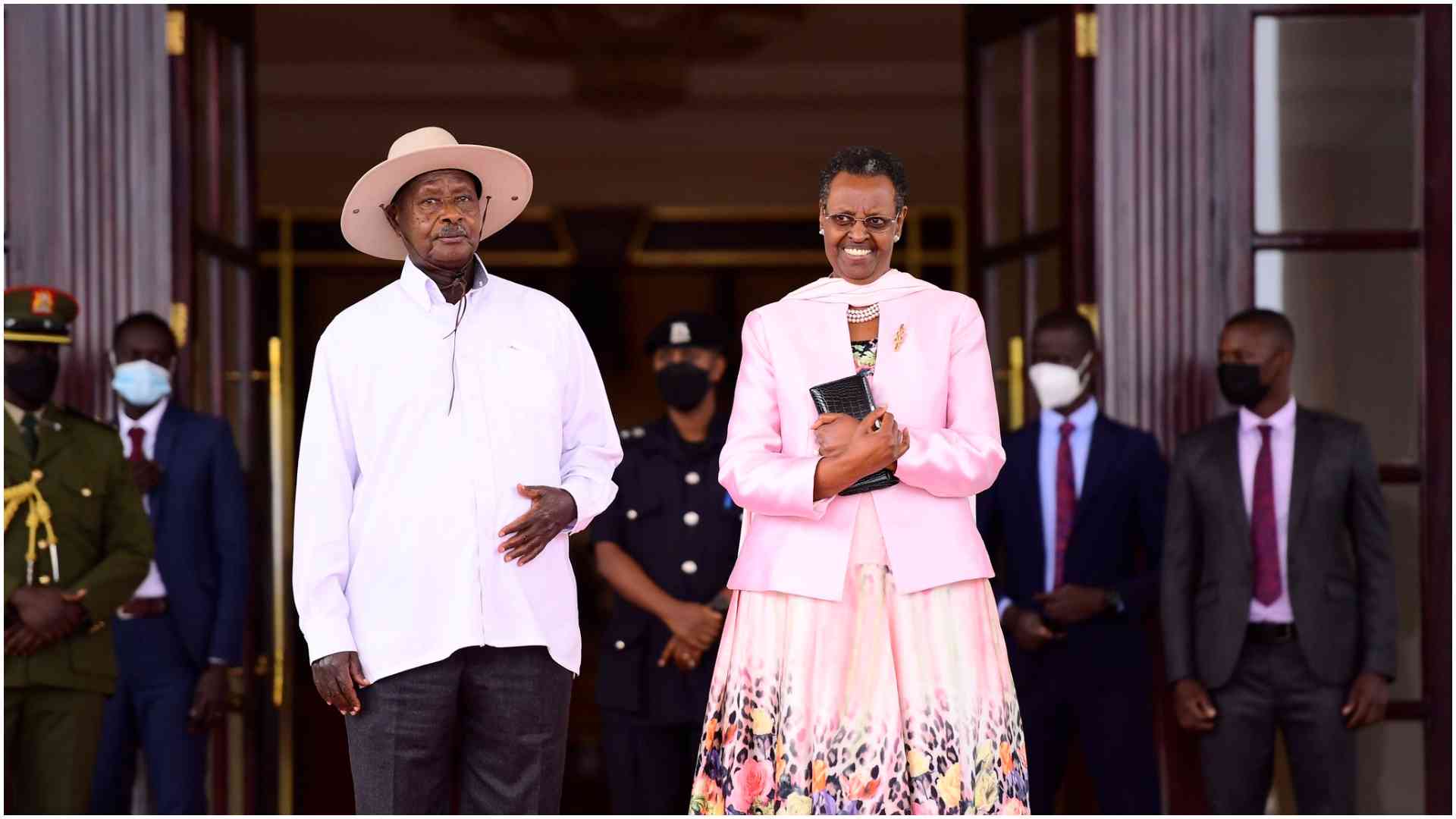Ugandan President Yoweri Museveni and First Lady Janet Museveni issued a joint apology aerlier this week for mistakes made during their nearly four-decade rule.
“As the top leaders of our movement, we humbly apologise for all the mistakes made by ourselves, our agents, and representatives,” both of them stated while reading from a prepared statement.
The apology comes at a critical juncture, with Uganda gearing up for the 2026 general elections.
The two would further continue with their apology. “We therefore stand here to repent and ask your forgiveness for the people of Uganda and the whole country, to restore the favor that we had with them in the beginning” and “bring healing to their hearts.”
The apology also touched on the need to Ugandans to soften their hearts and forgive them for their misdoings.
This public acknowledgment of past errors is unprecedented for Museveni, who has been in power since 1986.
The move has sparked a range of reactions, from cautious optimism among some citizens to skepticism from opposition figures who view it as a calculated political strategy rather than a genuine expression of remorse.
Political analysts suggest that this move could be an attempt to recalibrate public perception and address growing calls for change amidst increasing political pressure.
Ronald Namurinda, an Environmental Sustainability and Circular Economy Advocate argues that, “This apology, while a gesture of humility, must be seen as a strategic move to realign public perception and maintain influence,” he says.
“The true test of power lies not in words but in actions that follow. Will this apology lead to a reformation of policies or merely serve as a temporary shield?”
The apology also comes when their son ,Muhoozi Kainerugaba, has been a controversial figure, with past incidents, such as his tweets about invading Kenya, prompting public and international scrutiny.


